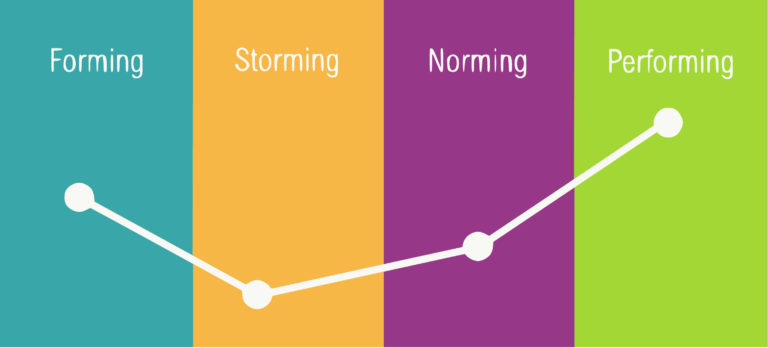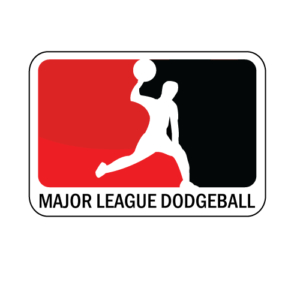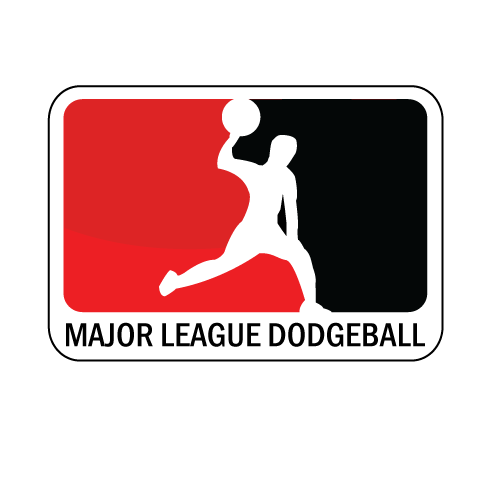The 5 Tuckman's Stages of Team Development
Teams that win, are teams that continuously grow and improve. Coaches and team leaders thus play an integral role in helping their teams through the stages of team development.
In this blog, you will read a brief of each of the stages and how the coach can help guide the team through each stage. But first, to understand the stages of team development, we will dive into its theory and background.
In 1965, Bruce Wayne Tuckman published his theory of the stages of team development called “Tuckman’s Stages,” which was based on research done on team dynamics. This theory first only consisted of four stages and later in 1977, in a joint effort with Mary Ann Jensen, Tuckman introduced the fifth stage.
These stages were a framework for a highly effective and functioning team that delivers the best results.

The 5 stages of team development in sports are:
1- Forming
2- Storming
3- Norming
4- Performing
5- Adjourning
Stage 1: Forming
The “forming” stage is the initial introduction of the members of a team. It is when information about backgrounds, interests, and cultures is shared. The team members discuss their goals and objectives as a team and start to position themselves in the team roles.
During this initial stage, the important role of the coach is to ensure that key goals and objectives are thoroughly discussed and agreed upon, and to provide a clear direction for the team. The coach will be responsible to guide the team to effectively communicate roles and responsibilities of each member and set the team dynamics.
Stage 2: Storming
After all the warming up and getting to know each other, as the teams start putting work in action towards their goals, they will, inevitably, reach the “storming” stage.
This is where team members will start to compete for acceptance and status. Their opinions will differ, causing conflicts within the team.
As they progress through this stage, they will learn how to function together as a team and find solutions to their problems, with the help of their coach or team leader. Whilst this stage is uncomfortable for some people, it is crucial in building a strong foundation of trust and reliability amongst the team members.
The responsibility of the coach during this stage is to facilitate healthy communication and ensuring that each member’s opinions are heard, and different ideas are respected and accepted. During this time, the coach or team leader can start motivating the team towards decision-making, to allow more independence and leadership, and do it in a manner that respects all factors affecting a member’s suggestions or opinions.
Stage 3: Norming
When the team is beginning to be more effective, they have entered the “norming” stage.
In this stage, the focus of the team is to work in harmony to achieve their team goals and objectives. They respect each other’s opinions, differences, and the different things that each player brings to the table.
The team is also perceived as more cohesive and natural, as all necessary elements of building a strong foundation, have been put in place. Team members trust each other and start to help each other to work towards their shared goals. They also start making significant progress as a team.
In the norming stage, the coach or team leader may not be as heavily involved in the decision-making, as the team is working more effectively together and is able to take more responsibility. This is a good opportunity for the coach to focus more on the game strategy and growth potential of the team.
Stage 4: Performing
The ”performing” stage is where the team is highly functional. The team members are comfortable with each other and can rely on each other. They are also ready to solve their own problems, and change processes as per mutual agreements, without the interference of the coach. Their performance at this stage can be measured through the team’s performance on the field and the morale of the team members.
The team at this stage is very self-reliant and self-sufficient and does not need the oversight required in previous stages. Thus, the coach or the team leader is more involved in the monitoring of the team’s progress and supporting the team with decisions at higher levels.
Stage 5: Adjourning
The final stage of team development is “adjourning.” This is when the team is towards the end of the competition season. For high achieving teams, this stage can bring about feelings of sadness, as the team members are going their separate ways. It is a good time to reflect on all the achievements and experiences throughout.
Whether you are already a team player or want to enhance your team building skills, join one of our Dodgeball leagues and build ever-lasting relationships with players.
Register your interest for a free trial game in Melbourne with Major League Dodgeball here!

